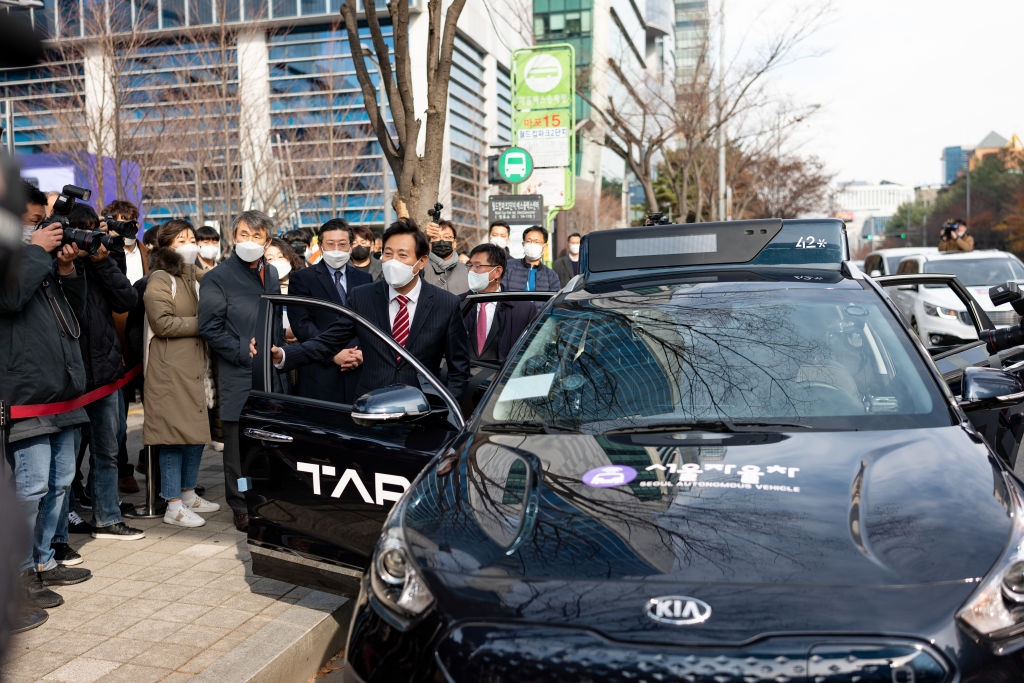South Korea’s demand for critical minerals

In December 2021 the then president of the Republic of Korea, Moon Jae-in, made a largely unexpected working visit to Australia, at the end of his term, and at unusually short notice. Media speculation was that the visit was all about China, given that both Australia and Korea had been subjected by China to costly economic coercion measures, and China’s aggressive actions continued to provoke concern in both countries.
The speculation was partially right, the visit was about China. But in fact it was about South Korea’s deep concern at the stranglehold China had on the production and refining of critical minerals, and an intent to build a closer reliable supply of them from Australia. Korea is poor in mineral and energy resources and has few reserves of critical minerals, but as a major global producer of batteries, semiconductors and EVs it has a compelling need for reliable supplies of them to fuel its industry.
Korea’s geostrategic situation feeds a sense of strategic and economic insecurity—it is close to an assertive China prepared to demonstrate displeasure by imposing costly economic coercion measures, while the ever-present threat from North Korea drives the south’s priorities for military resilience, including a hi-tech military industry. As well, Covid-19 and Russia’s war in Ukraine disrupted markets and associated supply chains, further elevating Korean perceptions of risk. The Trump administration’s ‘America first’ policies had already undermined global free trade commitments and confidence in the US-Korea alliance.
Underlying Korea’s policies is a compelling need to reduce these vulnerabilities, both strategic and economic, to build resilience and to position itself as a leader in advanced technologies. Korea is now an economic giant, heavily dependent on advanced manufacturing and exports for its continued economic prosperity and future growth, but one heavily exposed to international disruption. It is also focussed on the need domestically to transition away from its heavy dependence on imported fossil fuels, not least to meet international climate commitments to decarbonise, but to transform industry to a post-smokestack clean energy economy. Korea is committed to carbon neutrality by 2050.
Big business in Korea—the ubiquitous chaebol conglomerates—initially arose from government intervention and support in the 1950s and 1960s. While they are now key components of a massive private sector, they still work closely with government and look to government for policies supportive of their (and, interchangeably, Korean) interests. Korean governments have been responsive to chaebol pressures and priorities, notably in resource diplomacy. Hence Moon’s 2021 visit to Australia.
Samsung SDI, SK Innovation and LG Energy Solution, in particular, are totally dependent on critical mineral imports for production of batteries, while Samsung and SK Hynix need specialised critical minerals for semiconductor manufacture. Steelmaker Posco and LG Chem aspire to be major producers of battery-grade raw materials. Korea is the world’s second largest manufacturer of semiconductors and holds about 26% of the global EV battery market, but it is 95% dependent on imports for its processed critical minerals supply and over 80% of this supply comes from China.
The outcome is that Korea’s government has developed a series of policies to reduce dependence on a single supplier through an activist resource diplomacy, while also being prepared to offer industry support. In February 2023, Korea’s Ministry of Trade, Industry and Economy (MOTIE) issued a list of 33 critical minerals eligible for policy support, with 10 of these considered highest priority. Stockpiles are to be increased from 54 days to 100 days of anticipated demand. Korean investment in overseas exploration and development projects will be supported through access to loans, guarantees, insurance and tax credits, lessening the risks involved for Korean investors.
Korea’s critical minerals policies, alongside chaebol searches for opportunities, have already led to significant investment in Australia. Major steelmaker Posco has invested in lithium producer Pilbara Minerals (and has a joint venture with Pilbara to produce lithium hydroxide in Korea), taken a 30% stake in Ravensthorpe Nickel and cobalt in WA, and invested in graphite producer Black Rock Mining, amongst others. LG Chem has a 7.5% stake in Queensland Pacific Minerals (QPM), mining nickel and cobalt. And Australian rare earths miner Australian Strategic Minerals (ASM) produces neodymium and other rare earths in Korea, sourced from its mine in Dubbo.
Despite some lingering concerns about Australia’s energy export policies, shared with Japan, Korea overall sees Australia as a reliable and stable long-term partner and well-endowed in the minerals it seeks, with a highly skilled exploration and mining industry. Posco is the single largest private customer for Australian exports, valued at over $7 billion annually—and is a respected long-term investor with a relationship over more than 50 years with Australia. But as the global economy transforms, other Korean chaebol are accelerating their procurement and investment portfolios and Australia stands to benefit.
The Australia-Korea Business Council (AKBC) has a specialist sub-committee on critical minerals, intended to promote cooperation between Australian and Korean companies on their exploitation and trade. It led a delegation of hydrogen and critical minerals producers to Korea in 2022 and has produced a report Critical Minerals, Urgent opportunities which can be ordered from the AKBC website.